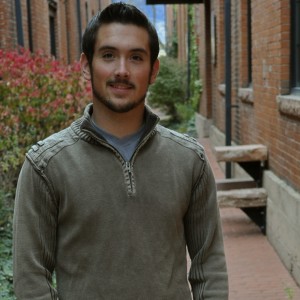 COLORADO SPRINGS, Co. — A resolution of sorts has been reached in a lawsuit against a Colorado school that prohibited a student from leading a group that met to sing, pray and discuss religious topics during their morning free period.
COLORADO SPRINGS, Co. — A resolution of sorts has been reached in a lawsuit against a Colorado school that prohibited a student from leading a group that met to sing, pray and discuss religious topics during their morning free period.
As previously reported, now former Pine Creek High School student Chase Windebank had been leading the group for three years during what is called the “seminar” period at the school. On Mondays and Wednesdays, students had been allowed to leave the class after the first fifteen minutes of the period, and students with a passing grade could also do so on Fridays.
“During the free time, students are permitted to engage in a virtually unlimited variety of activities, including gathering with other students inside or outside; reading; sending text messages to their friends; playing games on their phone; visiting the bathrooms; getting a snack; visiting teachers; and conducting official meetings of school clubs,” Alliance Defending Freedom (ADF), the Christian legal organization representing Windebank, outlined last fall.
For years, Windebank had been granted permission from the choir teacher to use the choir room when he left the “seminar” morning period. Windebank and other students used the room to sing Christian songs together, pray and discuss matters of faith.
But in September of last year, Pine Creek Assistant Principal Jim Lucas contacted Windebank and advised that he must discontinue the practice due to the “separation of church and state.” ADF then sent a letter to the school and district about the matter, and received a response from district attorney Patricia Richardson, who asserted that the period was rather not a free period but considered instructional time.
“Seminar at Pine Creek is not homeroom time. It is class time and it is considered instructional time,” she said. “No non-curricular clubs are permitted to meet during that time period.”
Richardson further stated that Windebank and the other students would have to hold their meetings either before or after school.
District spokesperson Nanette Andrerson likewise told The Gazette that students are only allowed to leave the classroom to “participate in curriculum-related activities, such as studying in the library or with study groups, seeking individual assistance from staff members or meeting with curriculum-related clubs.”
However, when Windebank complied and moved the meeting times outside of school hours, he found that attendance to the gathering dwindled from 90 students down to sometimes only 12 as students had prior commitments.
Therefore, as officials were unwilling to budge on the matter, ADF filed a federal legal challenge last November. But during the litigation, the district decided to do away with the seminar period altogether. It also asserted that Windebank and other students were welcome to gather during the lunch period.
“When the district stated in a court filing that Chase ‘and his fellow students are welcome to sit together in the cafeteria during lunch … to pray and discuss topics of religious interest,’ it represented a complete reversal of the district’s prior statements banning prayer at any time during the school day,” ADF wrote in a press release on Wednesday.
As a result, the Christian legal organization has now dismissed the case.
“Public schools should encourage the free exchange of ideas rather than find ways to silence discussion,” said ADF Senior Legal Counsel Jeremy Tedesco.
“While we commend the school district for recognizing that students have the right to pray and discuss religious topics during lunch, it could have shown greater respect both for the First Amendment freedoms of students and the educational process by simply allowing them to engage in religious conversations during the other free period in the day rather than silence the speech of all students by eliminating that period altogether,” he added.
The district asserts in response to ADF’s statement that the school “has never had, and does not have, a policy in place which restricts students’ rights to associate at lunch.” However, ADF reiterates that Windebank was informed that his activities would have to be conducted after hours, and lunch was never offered as an alternative.
Become a Christian News Network Supporter...


